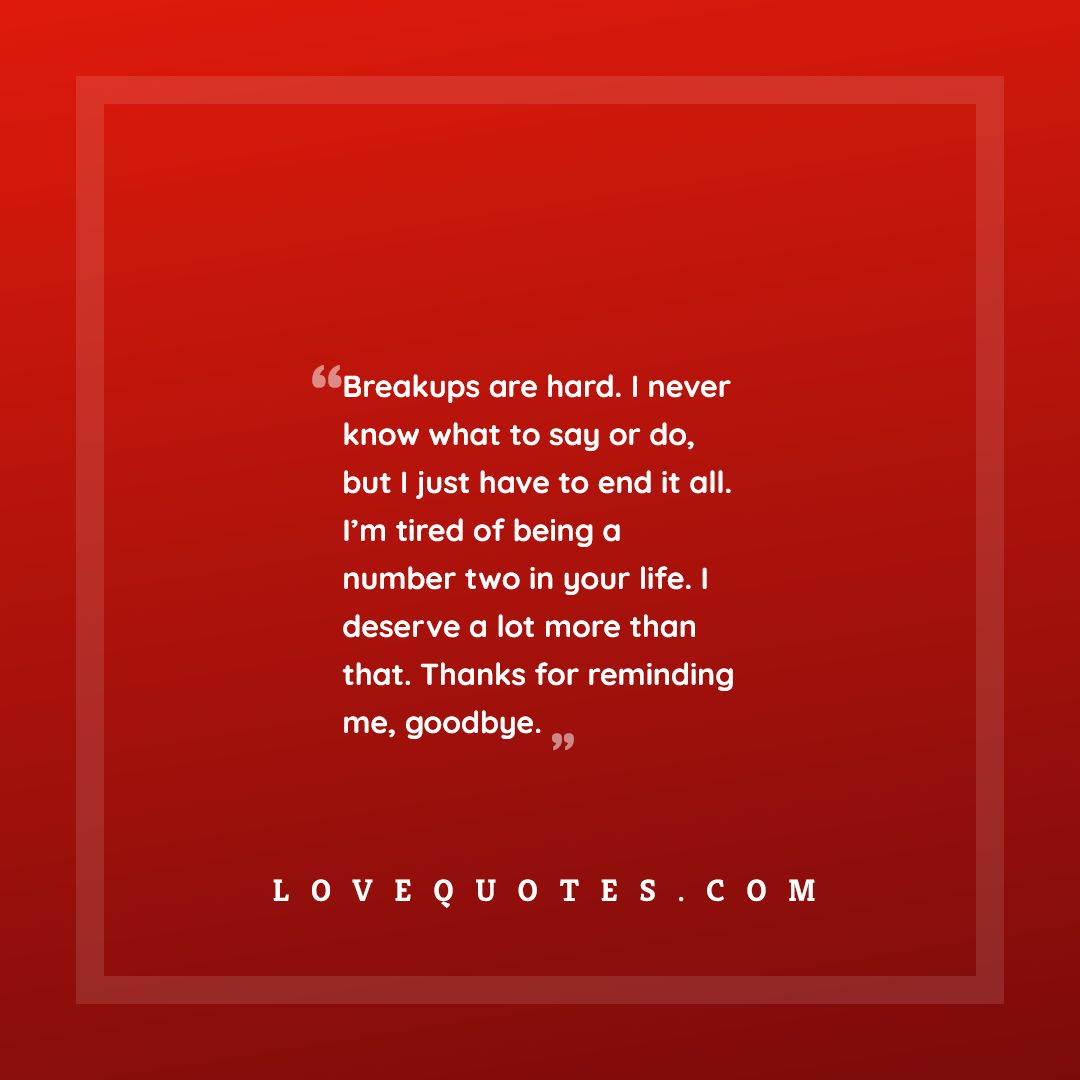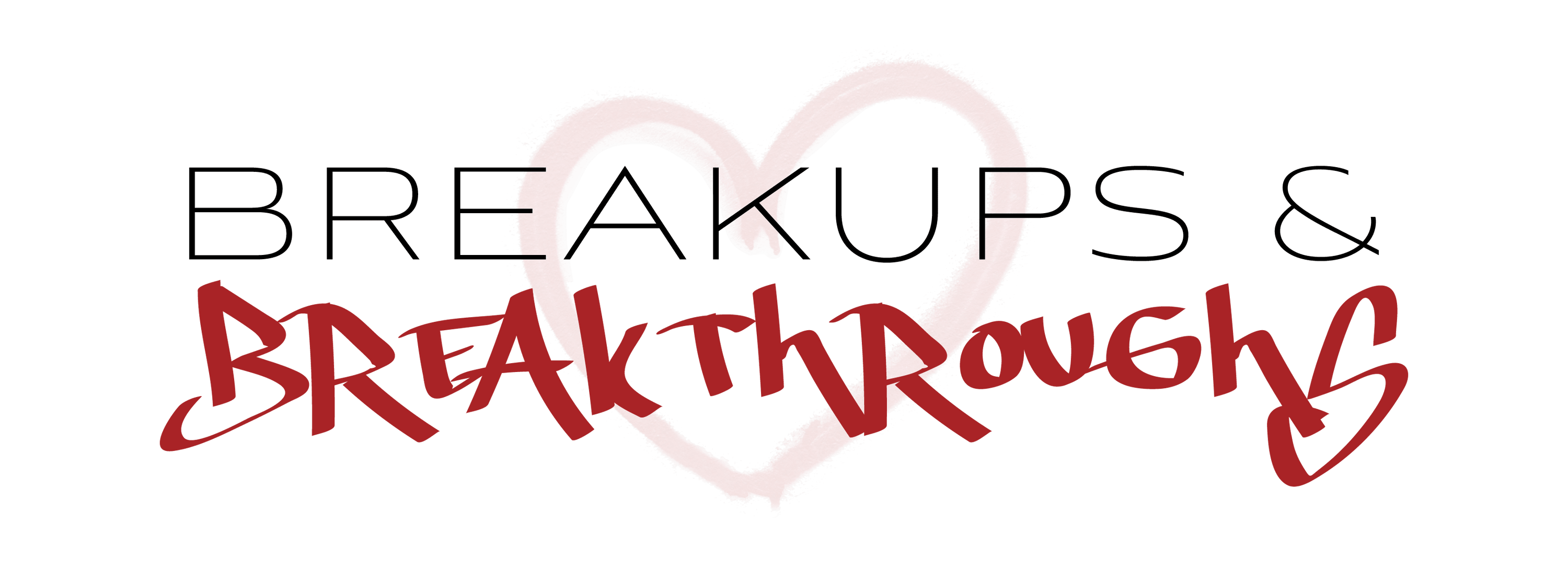So, you’ve just gone through a breakup. It’s like someone hit the pause button on your life, and now you’re left wondering what the heck just happened. Breakups are tough, there’s no denying that. They can leave you feeling lost, confused, and maybe even a little bit broken. But guess what? You’re not alone, and this is your moment to rebuild, reset, and rise stronger than ever.
Let’s face it, breakups are one of those things that nobody really prepares for. One minute, you’re scrolling through your partner’s IG photos, and the next, you’re deleting them faster than you can say “unfollow.” It’s messy, it’s raw, and it’s real. But here’s the thing—breakups don’t have to define you. In fact, they can be the beginning of something beautiful if you let them.
This article isn’t just about surviving a breakup; it’s about thriving after one. We’re going to dive deep into the world of breakups, explore why they happen, how to deal with them, and most importantly, how to come out on the other side as a better version of yourself. So grab a cup of coffee (or wine, no judgment here), and let’s get started.
Why Do Breakups Feel So Damn Hard?
Breakups hurt. There’s no sugarcoating it. But why do they hit us so hard? It’s not just about losing someone you care about; it’s about losing a part of your life, your routine, and sometimes even your identity. When you’re in a relationship, you build a life together, and when that life comes crashing down, it’s natural to feel overwhelmed.
The Science Behind Heartbreak
Did you know that heartbreak is actually a thing your brain can feel? Like, literally. Studies show that the pain of a breakup affects the same parts of your brain as physical pain. Yeah, that’s right—your brain doesn’t know the difference between a broken arm and a broken heart. So if you’re feeling like crap after a breakup, it’s not just in your head. It’s science!
- Heartbreak triggers the release of stress hormones like cortisol, which can leave you feeling anxious and drained.
- Your brain craves the dopamine rush you used to get from your partner, making it harder to move on.
- Breaking up can disrupt your sleep, appetite, and even your immune system. It’s like your body is mourning too.
But here’s the good news: just like physical pain, emotional pain can heal. And when it does, you’ll be stronger for it.
Types of Breakups: Not All Goodbyes Are the Same
Not all breakups are created equal. Some are sudden, some are gradual, and some are downright toxic. Understanding the type of breakup you’re dealing with can help you process it better. Here’s a quick breakdown:
1. The Mutual Decision
Sometimes, both partners realize that things aren’t working out. This is the “we’re better off as friends” kind of breakup. While it’s still painful, it’s usually less dramatic because both parties are on the same page.
2. The Unexpected Dump
You know the one. You’re living your best life, thinking everything’s peachy, and then BAM—your partner drops the bomb. These kinds of breakups are tough because they leave you feeling blindsided and questioning everything.
3. The Toxic Exit
When a relationship is toxic, breaking up can feel like a breath of fresh air. Sure, it’s still painful, but there’s often a sense of relief knowing that you’re finally free from a situation that wasn’t healthy.
No matter which type of breakup you’re dealing with, the key is to acknowledge your feelings and give yourself permission to grieve. It’s okay to be sad, angry, or confused. You’re human, after all.
How to Cope with the Emotional Rollercoaster
Breakups are like emotional rollercoasters—up one minute, down the next. But there are ways to manage the ride and keep yourself from losing your mind. Here are some tips:
1. Let It Out
Crying is totally okay. In fact, it’s good for you! Studies show that shedding a few tears can help release pent-up emotions and reduce stress. So go ahead, turn on your favorite sad playlist, and let it all out.
2. Lean on Your Support System
Your friends and family are your rock during tough times. Don’t be afraid to reach out and talk about how you’re feeling. Sometimes, just having someone listen can make a world of difference.
3. Practice Self-Care
Taking care of yourself is crucial after a breakup. Whether it’s treating yourself to a spa day, going for a run, or simply indulging in your favorite comfort food, self-care can help you heal faster.
Remember, coping with a breakup is a journey, not a destination. Be patient with yourself and trust that things will get better with time.
The Role of Communication in Breakups
Communication is key in any relationship, and that includes breakups. How you communicate during and after a breakup can make a huge difference in how you heal.
1. Have an Honest Conversation
If possible, sit down with your ex and have an open, honest conversation about why things ended. This can help you both gain closure and prevent lingering resentment.
2. Set Boundaries
Decide whether you want to stay friends or cut ties completely. Whatever you choose, make sure you’re clear about your boundaries and stick to them.
3. Avoid the Temptation to Reconnect
It’s easy to fall into the trap of wanting to “just talk” or “meet up as friends.” But unless you’re both ready, this can do more harm than good. Give yourself time to heal before jumping back into anything.
Good communication can turn a painful breakup into a learning experience. It’s all about respecting each other’s feelings and moving forward with grace.
When to Seek Professional Help
Sometimes, breakups can be so overwhelming that they affect your mental health. If you’re struggling to cope, don’t hesitate to seek professional help. Therapists and counselors can provide valuable support and guidance during this tough time.
Signs You Need Help
- You’re experiencing prolonged feelings of sadness, anxiety, or depression.
- You’re having trouble sleeping or eating.
- You’re using alcohol or drugs to cope.
- You’re isolating yourself from friends and family.
There’s no shame in asking for help. In fact, it’s a sign of strength. A professional can help you work through your emotions and develop healthy coping strategies.
Rebuilding After a Breakup
Once the dust settles, it’s time to start rebuilding your life. This is your chance to rediscover who you are and what you want moving forward.
1. Rediscover Your Passions
Remember those hobbies and interests you put on hold during your relationship? Now’s the time to pick them back up. Whether it’s painting, hiking, or cooking, doing things you love can help you feel more like yourself again.
2. Set New Goals
Breakups can be a wake-up call to reevaluate your life and set new goals. Maybe it’s time to focus on your career, travel more, or pursue a new passion. Whatever it is, make it something that excites you.
3. Practice Gratitude
It might sound cheesy, but practicing gratitude can actually help you heal faster. Take a few minutes each day to reflect on the things you’re thankful for. This can shift your mindset from one of loss to one of abundance.
Rebuilding after a breakup is about creating a new normal for yourself. It’s not about replacing what you lost, but about finding joy and fulfillment in new ways.
Lessons Learned from Breakups
Every breakup is a learning experience. Even the toughest ones can teach you valuable lessons about yourself, relationships, and life in general.
1. Self-Worth Comes from Within
Breakups can make you question your self-worth, but remember this: your value doesn’t depend on anyone else. You are enough, just as you are.
2. Communication is Key
Many relationships end because of a lack of communication. Learning how to communicate effectively can help you avoid similar mistakes in the future.
3. Trust Your Instincts
Sometimes, your gut feeling is right. If something feels off in a relationship, don’t ignore it. Trusting your instincts can save you a lot of heartache down the road.
Breakups are painful, but they can also be transformative. They teach you resilience, self-awareness, and the importance of healthy relationships.
Breaking Up in the Digital Age
In today’s digital world, breakups come with their own set of challenges. Social media, texting, and online dating have changed the way we approach relationships—and breakups.
1. Unfollow, Unfriend, or Mute
Seeing your ex’s updates can be a trigger for negative emotions. Consider unfollowing or muting them on social media to give yourself space to heal.
2. Delete Those Messages
Text messages and emails can be tempting to revisit, but they’re not helping you move on. Delete them or archive them if you need to.
3. Take a Break from Dating Apps
If you met your ex through a dating app, it might be a good idea to take a break from it. Focus on healing yourself before diving back into the dating pool.
Technology can make breakups more complicated, but it can also be a tool for healing. Use it wisely and set boundaries that work for you.
When Is It Time to Move On?
Knowing when to move on from a breakup is a personal decision. For some, it takes weeks; for others, it can take months or even years. Here are some signs that you’re ready to move on:
- You no longer dwell on the relationship every day.
- You feel excited about your future, not just your past.
- You’re open to new experiences and relationships.
Remember, there’s no timeline for healing. Take all the time you need, and don’t rush the process. When you’re ready, you’ll know.
Conclusion: Breakups Are Hard, But You’re Stronger Than You Think
So there you have it—your ultimate guide to surviving and thriving after breakups. Breakups are tough, but they don’t have to define you. They can be opportunities for growth, self-discovery, and transformation.
As you move forward, remember to be kind to yourself. Healing takes time, and that’s okay. You’re not alone in this journey, and there’s a whole community of people who understand what you’re going through.
Now it’s your turn. Share your thoughts, experiences, or questions in the comments below. And don’t forget to check out our other articles for more tips on love, life, and everything in between. You’ve got this!
Table of Contents
- Why Do Breakups Feel So Damn Hard?
- Types of Breakups: Not All Goodbyes Are the Same
- How to Cope with the Emotional Rollercoaster
- The Role of Communication in Breakups
- When to Seek Professional Help
- Rebuilding After a Breakup
- Lessons Learned from Breakups
- Breaking Up in the Digital Age
- When Is It Time to Move On?
- Conclusion: Breakups Are Hard, But You’re Stronger Than You Think

